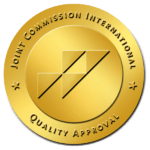ANTENATAL SCREENING
What To Expect:
Antenatal Screening is not compulsory. Expect to make a series of decisions when you sign up for antenatal screening.
Below are just some of the things you should expect before, during and after an antenatal screening:
- Depending on your baby’s risk for developing certain diseases, your physician as a result will schedule you for antenatal tests at approximately 15 weeks of gestation. You will decide such as what tests to run and how the samples from you or your baby will be extracted.
- Some procedures, Such as Down’s Syndome, can now be performed using blood tests and ultrasound scans. However, others will require a more invasive extraction method such as extracting amniotic fluid from the embryo.
- Tests will be run on the samples. Also you will be required to undergo a follow up consultation.
- Your physician will provide information about the test results. Initial results may require further tests for confirmation or, you may have to make a decision on positive results. That includes making a decision about whether or not to abort your pregnancy. In UAE, abortions are considered legal in two circumstances – if the mother’s life is at risk because of the pregnancy or if the foetus has a disorder that makes it “incompatible with life” and below 120 days.
Antenatal Screening Cost: Cost for antenatal screening depends on the tests you will elect to run. Conditions that may complicate extraction and testing will also factor into the cost.
What Is Antenatal Screening (Invasive and Non-invasive Prenatal Test)?
Antenatal Screening is a procedure conducted during pregnancy that provides prenatal diagnosis of your baby’s health condition. These involves running specific DNA tests that are particularly recommended for couples whose babies are considered to be at increased risk for developing hereditary diseases & diseases resulting from chromosomal anomalies as:
- sickle cell anemia
- thalassemia
- Down’s Syndrome
- Edward’s Syndrome
- Patau’s Syndromes
Invasive and Non-invasive Prenatal Test
The first step involves the administration of a Non-Invasive Prenatal Test Generally known as (NIPT) where the baby’s DNA is extracted from the mother’s blood. Afterward the health professionals then perform screening tests to check for irregularities in your baby’s DNA. In conclusion if any of the tests comes back positive, your doctor will prescribe next steps considering all the risks involved. Your baby may be scheduled to undergo Invasive Prenatal Test.
For instance Two of the most common procedures are amniocentesis and chorionic villus sampling. In both procedures, extraction of amniotic fluid is necessary which carry risks of miscarriage.
Who Should Undergo Antenatal Screening?
In short, pregnant women who wish to know the health problems that their baby may be at increased risk for developing should schedule antenatal screening. However, since the procedures involved in diagnostic tests increases risk of miscarriage, you should have your baby’s risk result evaluated first.
Meet Our Doctors
Our team

Dr. Mohamed Osama Taha

DR. IBTESAM SHEYA A. SHANEEN AL JABAWY

Dr. Gomathy Nachimuthu


